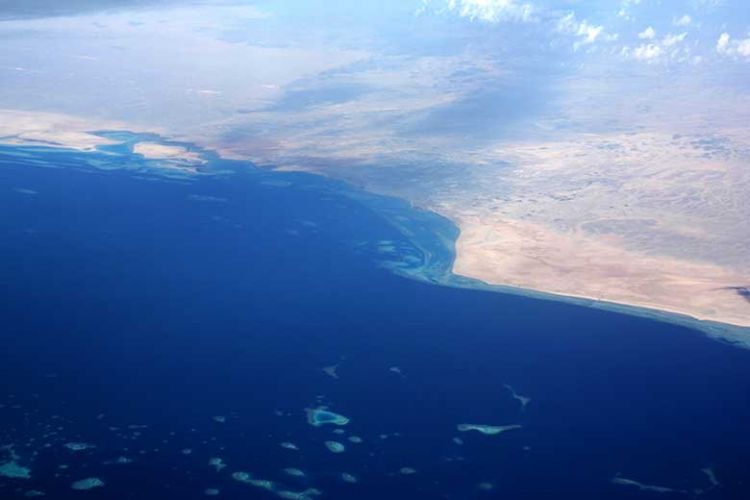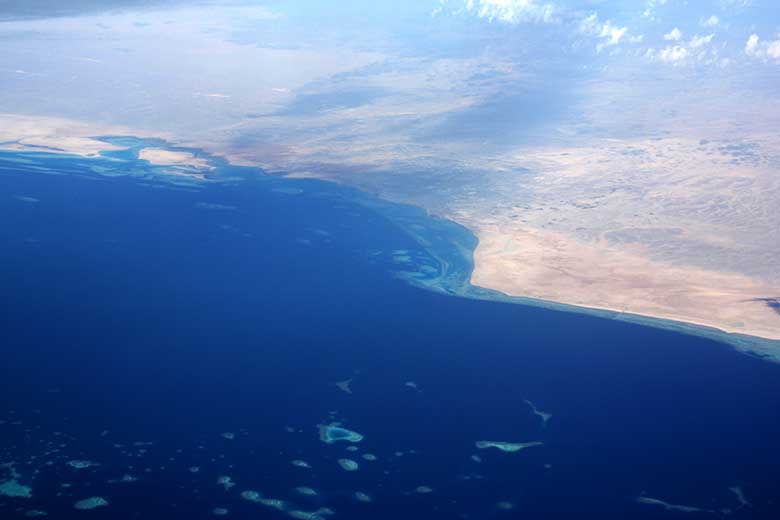Protecting people and the environment from chemical pollution

Prince Mohammad Bin Fahd University is researching practical solutions for the international risks created by rapid industrialisation in the Arabian Gulf
Saudi Arabia's economy thrives on oil and the Eastern Province, which borders the Arabian Gulf and is home to Prince Mohammad Bin Fahd University, is the country's oil capital. Research at PMU is geared towards finding the impact of this economic powerhouse on the rich marine environment of the Arabian Gulf.
The plethora of oil refineries and petrochemical plants in the region release pollutants into the surrounding environment, which then make their way into the seafood stocks that account for a significant portion of both local diets and livelihoods.
Mohammad Ashraf, dean of PMU's College of Sciences and Human Studies, is among several academics at the university examining the impact of waste from petrochemical processing, accidental oil spills and oil tanker traffic, which he says has increased many fold in recent years.
Combined with the growing urbanisation and population growth along the coast, all of this means the surrounding marine environment is under “major stress”, says Dr Ashraf. Researchers at PMU are carrying out monitoring and assessment studies to determine how the pollutants affect local fish species and the people who eat them. “A lot of effluents are produced in these industries and they are discharged to the Gulf, so it's really important to monitor what kind of impact they are having on marine life there,” he adds.
PMU researchers have found that heavy metals such as cadmium, mercury and chromium in the bodies of fish and shrimp that they have studied, along with organic pollutants, including polycyclic aromatic compounds and organo-tin compounds. All can be hazardous to human health.
Through tracking these species, PMU’s researchers have found that these toxic chemicals affect species “right in the beginning of the life cycle” and continue to build up throughout the life cycle.
PMU has found that by analysing these species in their infantile stage and in their adult stage, when they are ready for fishing, its researchers can catch different varieties of fish and see how the accumulation pattern changes in them.
“If there is contamination, the impact is twofold. Number one, [it affects] the health of the consumer who eats them. Number two, because they are also exported to neighbouring countries and cities, it creates a problem in the economic sector if there are reports that this water is damaging the habitat and production of seafood,” says Dr Ashraf.
Because about 40 per cent of Saudi Arabia’s coastline is developed with towns, commercial sites and industry, these pollutants come not only from oil refineries but also from domestic waste.
This growth in coastal urbanisation has also brought with it other sources of pollution that pose a threat to both people and the environment. Smoking is common, particularly among young people, and Dr Ashraf's research has found lead and cadmium in locally available cigarettes. “Apart from nicotine and other bad things that we already know [about], there are these heavy metals also present in tobacco, which are hazardous for other parts of the human body apart from the lungs,” he explains.
PMU researchers have also found organic pollutants in foodstuffs, such as in the fruit grown in the region. Some varieties of tea – which have become more popular partly thanks to a public health campaign discouraging young people from consuming sugary drinks – were found to contain heavy metals, but within safe limits as stipulated by the World Health Organization.
The research at PMU aims to inform strategies that will help reduce the impact of pollution on the environment. The government, for example, has instructed fishing boats to travel deeper into the Gulf rather than staying close to the coast in an effort to avoid the most polluted areas.
But that strategy alone may not succeed. “The problem is that the Arabian Gulf is busier than ever. Maritime traffic is booming and Gulf is a very sluggish type of sea. It is not like an active ocean that you might have seen in other parts of the world,” says Dr Ashraf. “So when there are pollutants, it takes time for them to be dispersed. They remain concentrated for a long period of time.”
This has provided a “good incentive to study the quality of the water, the sediment and the fish and shrimp living in them,'' he adds.
As well as monitoring how pollution affects the marine environment, researchers at PMU are looking at ways to mitigate its effects. Dr Ashraf is developing a treatment called “supported liquid membranes technology”, a low-cost way to remove the most harmful pollutants from waste. In pilot testing, the technology has had promising results filtering pollutants from industrial textile dyes, treating between 100 and 500 litres of waste per day. Dr Ashraf’s team is aiming to develop the technology further so that it can treat the thousands of gallons a day needed for commercial use.
Researchers are also seeking funding for a research lab focusing on what happens to organic pollutants after they enter the environment. “We want to know that when these pollutants reach the marine environment: how do they change or degrade? How we can get rid of them, or convert them into less hazardous or non-hazardous compounds?”
He and other researchers are pushing for government to take further action to tackle pollution and protect fishing stocks. They have recommended that local authorities develop aquaculture farms, to cultivate shrimp and fish outside the contaminated coastal waters. They have also suggested establishing an oil spill emergency plan for ships and offshore installations, to follow to limit the damage from any accidental oil spills.
To embed this research and its core mission into the curriculum at PMU, Dr Ashraf has set up an elective course on sustainable environment for students, which is now in its fourth semester. “We educate the local students about these environmental challenges and how we can solve them. If we can train Saudi youth to understand the environmental issues and the different types of stressors in this part of the Middle East, they will also want to address them in future.”
More information about Prince Mohammad Bin Fahd University
